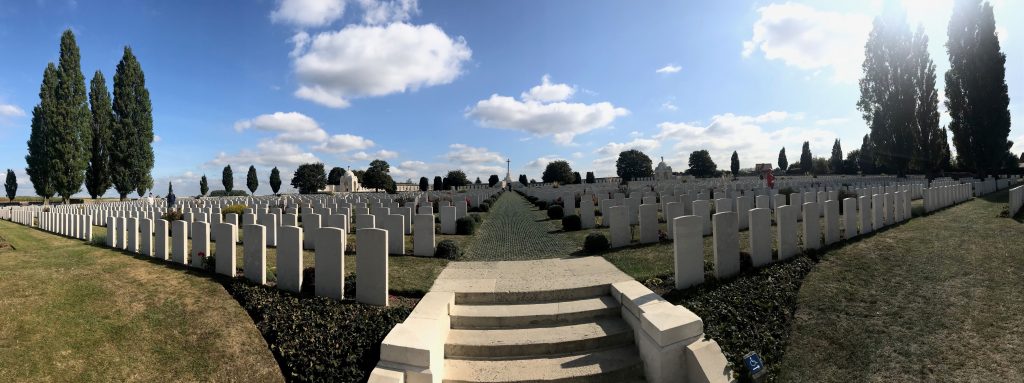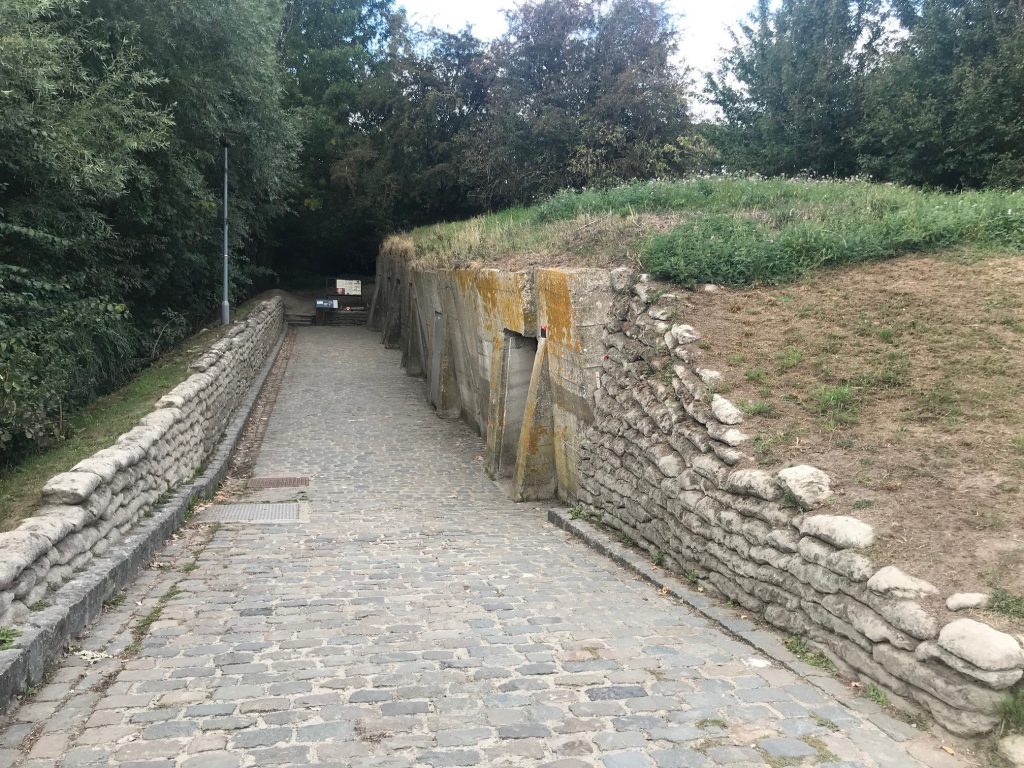
This week, haligonians will collect up their trash and take it to the curb. It’s such a normal activity, we think nothing of it, and no one really notices the trash piled at the end of the driveway waiting collection.
Last year in Belgium, 250000kg of unexploded ordnance was dug up by farmers and construction workers just going on with their normal lives. When people find it, they stack it on the side of the road, and call the army to collect it. Since the end of the first world war, its munitions have killed over 300 people.

the remnants of war are common, and normal, just like taking out the trash.
Today the battlefields of Belgium are pastoral. There is little sign of the destruction that the war caused – though its there if you know to look. The town of Ypres in Belgium looks hundreds of years old, though the date on the oldest building is 1922. though the town stayed in Allied hands throughout the war, it was obliterated.
When you visit vimy ridge, the monument is striking. But so is the landscape. The ground is pockmarked with shell holes, one connecting with another, no spot untouched. If you ski, and know what a field of mougles look like – that’s Vimy ridge, though grassy, and now dotted with trees. Fences and signs warning of unexploded shells keep you on the roads.

In Flanders fields the poppies blow Between the crosses, row on row, That mark our place; and in the sky The larks, still bravely singing, fly Scarce heard amid the guns below. We are the Dead. Short days ago We lived, felt dawn, saw sunset glow, Loved, and were loved, and now we lie In Flanders Fields. Take up our quarrel with the foe: To you from failing hands we throw The torch; be yours to hold it high. If ye break faith with us who die We shall not sleep, though poppies grow In Flanders Fields.
Major John McCrae, a field surgeon in the Canadian artillery, in the midst of the Second Battle of Ypres, in Belgium, in May 1915. He died of pneumonia at Wimereux, France on January 28, 1918.
